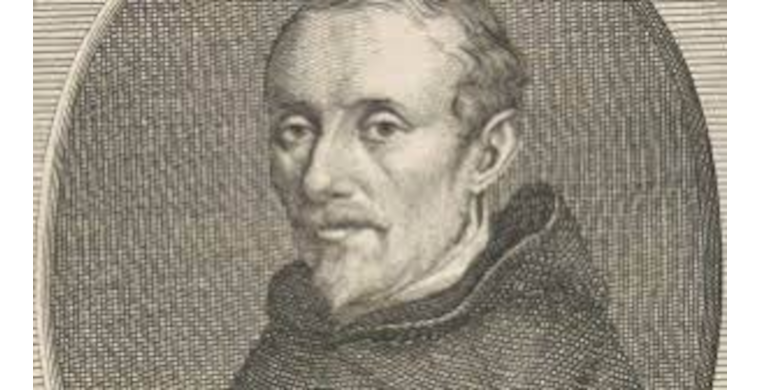THE "MENACE" FROM VENICE: PAOLI SARPI (1552 -- 1623)
By Roger Salter
Special to Virtueonline
www.virtueonline.org
January 1, 2023
Paolo Sarpi is generally recognized to be, by historians and academics, the greatest genius to have emerged from the Italian city of Venice. He was a near-polymath and highly eminent public figure of enormous influence. His course of life (CV) and various occupations read like an amalgamation of several human histories in one.
From early life a member of the Servite Order, his talents and achievements were extraordinary in an age of exceptional ability when he made his mark as a statesman, prelate, cannon lawyer, scientist (e.g. anatomy, astronomy, confidant of Galileo) and historian (recording the proceedings and conclusions of the Council of Trent-1619). Sarpi was the champion of the freedom and honor of the Venetian republic politically and ecclesiastically.
He withstood papal discipline, resisting an interdict imposed upon his native city over a number of years (1605-7), and proposed that Venice ought to have a "free church" with a homegrown liturgy and a toleration for Protestantism. It is this religious tendency that is the concern of this brief article. Sarpi remained Catholic as was his preference, but he harbored a high regard for Reformed Anglicanism.
Much of this respect for Protestantism chimed with his personal criticism of Rome and its ways. His independence of mind and power of objective intellect detected the faults and flaws of Catholicism, but he was also influenced to a high degree by the English ambassador to Venice, Henry Wotton who introduced him to Cranmerian Liturgy and Theology in its practical and pastoral terms.
Sarpi admired the stance of the Church of England but did not wish to adapt to it entirely. However, he exercised great goodwill towards the members of the Ecclesia Anglicana resident in Italy and encouraged their Christian liberty of honest conviction in worship and doctrine. Sarpi was accused of being a closet Protestant, just as some of his abstruse reasoning caused many in his time (embittered Catholics), and even more latterly (avid humanists), to accuse him of a guileful atheism. His stress, on God, Gospel and Christian goodness obviate such a claim - (but then everyone would like to have the genius of Fra Paoli on their side as a credible bolster to their view).
Critical as he was of Trent, Sarpi stated his preference for the theology of the Synod of Dort and established contact with members of that assembly. Sarpi happened to be a full-fledged, utterly convinced Augustinian. Jaska Kainulainen writes in his biography of Sarpi, "The central argument of this book is that Sarpi was a believer whose religio-political ideals were essentially in line with those of St Paul, St Augustine and sixteenth-century reformers (both Protestant and Catholic).
For Sarpi there was no difference between serving the Senate of Venice and serving God. I base this claim on careful analysis of the pensieri (philosophical notes, topical sketches, etc) and acceptance of the evident prima facie meaning in Sarpi's other writings (Paolo Sarpi: A Servant of God and State, chapter 1, pages 1-2, Brill 2014).
Advancing to page 4 Kainulainen advances an interesting insight: "In some aspects his adherence to natural determinism (e.g., Edwards, Chalmers, perhaps Bradwardine) correlates with his acceptance of the Calvinistic version of predestination. This not to say that natural determinism and Calvinistic predestination were interchangeable in Sarpi's thought" (See free agency, A.A. Hodge, Predestination, Evangelical Theology, Banner of Truth, 1990 - a masterly discussion).
It would seem, in a broad sense, that Paolo Sarpi, though an intriguing figure for Christian reflection, both Protestant and Catholic, is now a forgotten though very worthy person of the past. He ought to be heeded by members of the Church of Rome and appreciated and encouraged by adherents of the Reformation, especially by Anglicans with whom he had great affinity. He is salient part of the proof that that those who forsake other denominations for refuge in Rome (especially in its entirety) make a seriously blind mistake in undermining the gains of Reformational and Evangelical effort to ascertain Scriptural truth.
A Poem by Henry Wotton (1568-1639)
O thou great Power, in whom I move,
For whom I live, to whom I die,
Behold me through thy beams of love,
Whilst on this couch of tears I lie,
And cleanse my sordid soul within
By thy Christ's blood, the bath of sin.
No hallowed oils, no grains I need,
No rags of saints, no purging fire,
One rosy drop from David's seed
Was worlds of seas to quench thine ire.
O precious ransom, which once paid
That Consummatum Est was said;
And said by him that said no more,
But sealed it with his sacred breath.
Thou then, that has dispensed my score,
And dying was the death of Death,
Be to me now--on thee I call--
My Life, my Strength, my Joy, my All.
END














